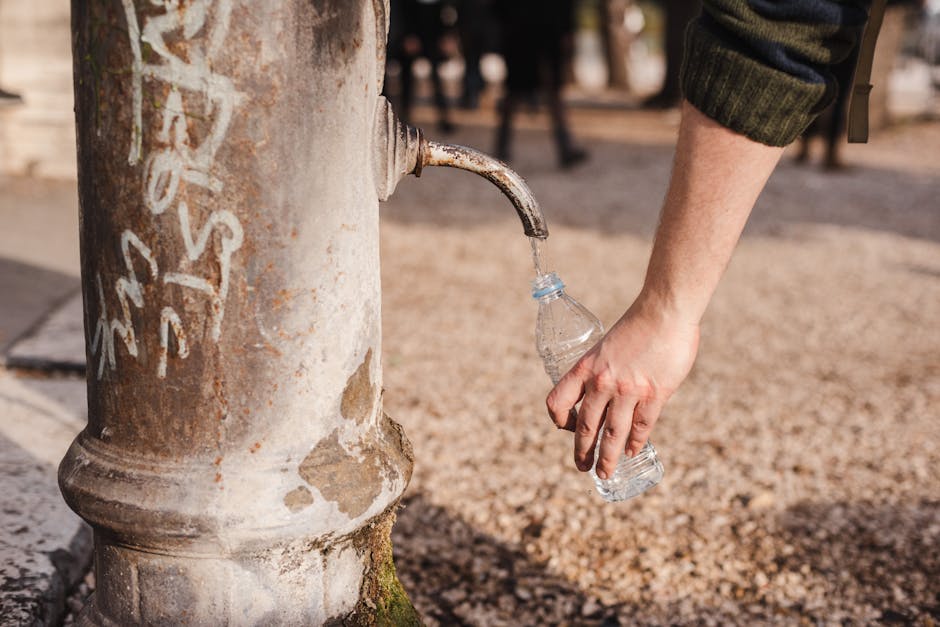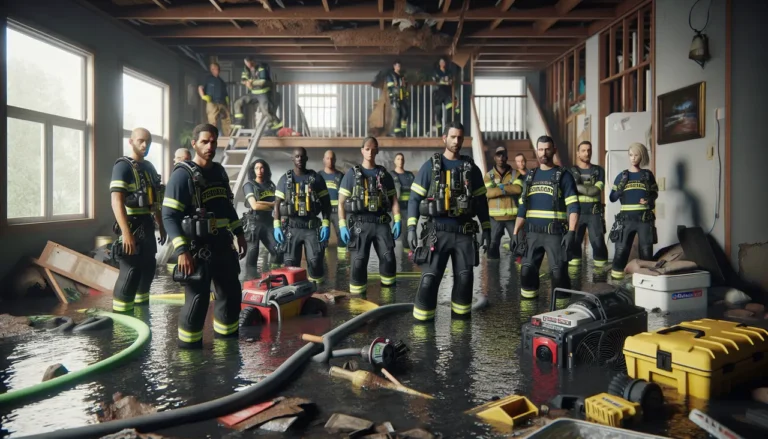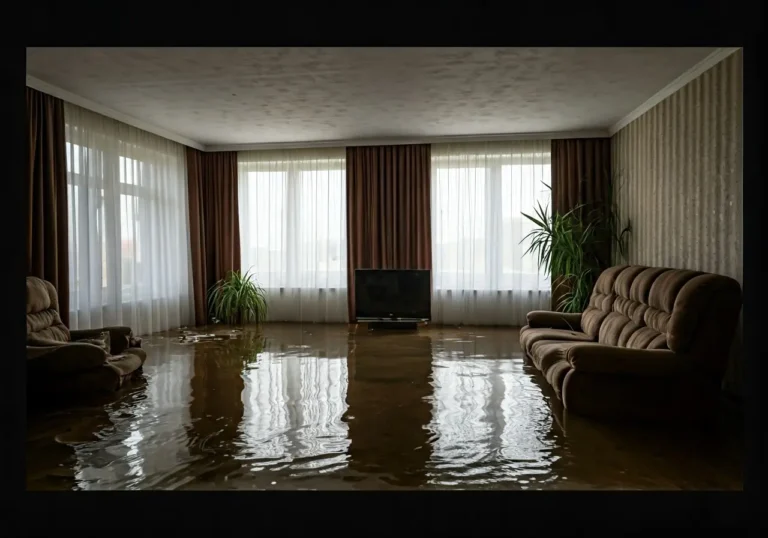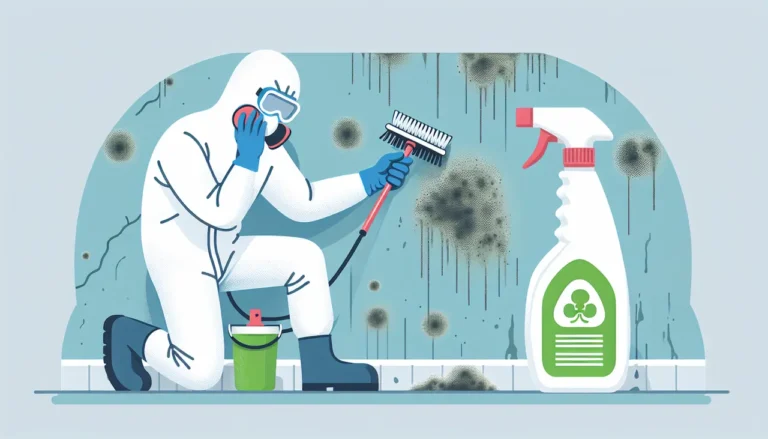Introduction to Water Extraction
Water extraction is all about getting rid of unwanted water from your space, whether it’s a result of floods, leaks, or any water damage. Think of it as a first step to take back control of your house or building after water has invaded it. There are two main paths you can take: roll up your sleeves and handle it yourself (DIY) or call in the professionals to take care of it for you. Each approach has its pros and cons, including differences in cost, efficiency, and effectiveness. This section will dive into what water extraction is, why it’s crucial, and the initial considerations you should have in mind when facing water damage. Remember, acting fast is key to reducing damage, but how you act—doing it yourself versus hiring pros—can massively influence the outcome.
Understanding DIY Water Extraction: Tools and Steps
For DIY water extraction, you’re diving into a task that requires more than just a mop and bucket. You’ll need some specific tools: a wet vacuum to suck up water, fans or a dehumidifier to dry out the area, and a moisture meter to check the walls and floors are fully dry. The steps are straightforward but demanding. First, remove standing water with the wet vacuum. Next, use fans or a dehumidifier to dry the area thoroughly. This can take a few days. Keep checking the humidity level with your moisture meter. Lastly, inspect for and address any mold growth since it thrives in damp environments. Tackling this job yourself can save money upfront, but make sure you’re thorough. Missing hidden moisture can lead to costly damage down the line.
The Hidden Costs of DIY Water Extraction
Going the DIY route for water extraction seems like a money saver at first glance. But, it’s not as straightforward as it seems. Hidden costs start to show up, often making it pricier than hiring professionals. First off, you need the right equipment. Renting or buying it can dent your wallet. We’re talking industrial fans, dehumidifiers, and wet vacuums. Next, consider your time. Time spent is money lost, especially if you have to take off work. Then, there’s the risk factor. Missed spots of moisture can lead to mold, which is a health hazard and a nightmare to eliminate. Fixing DIY mistakes adds more to the bill, possibly making professional services seem like a bargain in comparison. Going professional from the start not only saves headaches but often ends up being more cost-efficient.
When to Consider Hiring Professional Water Extraction Services
Deciding between DIY and hiring professionals for water extraction boils down to a few critical points. Here’s when you should lean towards the pros. First, the scale of the damage. If your house looks like a small pond, that’s a sign to call in experts. They’ve got the heavy-duty equipment that sucks up water fast and efficiently. Second, consider the water type. Clean water from a burst pipe is one thing, but if it’s grey or black water—think sewage or floodwater—don’t risk it. Professionals know how to handle it safely. Third, think about the risks. Water damage isn’t just about soggy carpets. It’s about what you can’t see—mold, structure damage, electrical hazards. Experts know where to look and what to fix. Plus, they help with insurance claims, documenting everything needed to make your case strong. In short, if it’s big, risky, or involves dodgy water, calling professionals isn’t just smart; it’s likely the safest bet for you and your home.
Breaking Down the Costs of Professional Water Extraction
When facing water damage, you have two paths: do it yourself or call the pros. Now, let’s talk numbers for the professional route. On average, professional water extraction can set you back (1,000 to )4,000, depending on how much water and the damage’s extent. Here’s the breakdown: the pros bring industrial-grade equipment that makes the process faster and more efficient. You’re not just paying for the removal of water but also for the prevention of mold and structural damage. The cost might seem high, but consider the expertise and peace of mind you’re getting. Areas with high living costs might see higher prices, and emergency services might add to the tab. But remember, going pro can save you from costlier repairs down the line.
Comparing DIY vs Professional Water Extraction: Efficiency and Effectiveness
When it comes to getting water out of your home, you might think doing it yourself can save some cash. But let’s get real. Professionals pack a punch in efficiency and effectiveness that’s hard to match. First off, professionals come with high-powered equipment that sucks up water fast and efficiently. Your household vacuum or a simple mop and bucket just can’t keep up. Plus, pros know exactly where to look for hidden moisture that can cause mold and damage down the line. On the DIY side, you might save upfront costs, but the risk of missing hidden water leads to bigger, costlier problems. So, when weighing DIY against professional water extraction, think long term. Pros might seem pricier, but their speed and thoroughness offer peace of mind and protect your home from future damage.
The Risks and Rewards of DIY Water Extraction
Going the DIY route for water extraction can be tempting. It looks like a good way to save cash, but it’s loaded with risks. Without professional tools, fully removing all moisture, especially from hidden spots, is nearly impossible. Lingering dampness can invite mold and mildew, putting your health at risk. On the upside, tackling minor spills yourself can save you money and teach you valuable skills. However, for serious water damage, hiring professionals is the safer bet. They have the experience and equipment to ensure the job is done right, potentially saving you from costly repairs down the line. Always weigh the size and seriousness of the water issue against your ability to truly fix it before diving in.
Why Professional Water Extraction May Be Worth the Investment
When your home floods, whether from a broken pipe, overflow, or a natural disaster, it feels like a nightmare. You might think grabbing a wet vac and some fans from the garage is the way to go, DIY style. But, here’s the thing, professional water extraction might actually save you money and headaches in the long run. Professionals have powerful equipment that extracts water quickly and efficiently, much faster than any DIY method. They also spot hidden moisture that could lead to mold, which is not just gross but also a health hazard. Plus, they know how to deal with contaminated water. Sure, paying professionals costs upfront, and yes, the price might make you wince a little. However, consider this: if moisture lingers, you could be looking at serious repairs down the line—think damaged foundations, ruined floors, and mold removal, all of which cost a pretty penny. Hiring professionals might feel like a big outlay, but it’s an investment in your home’s health and your peace of mind. Think of it as paying not just for water extraction but for avoiding a cascade of future expenses.
How to Decide: DIY or Hire Professionals for Water Extraction?
When facing water damage, deciding between DIY or hiring professionals for water extraction boils down to a few critical points. First, consider the extent of the damage. If it’s a small area, say a bathroom flood, you might manage with a wet vac and some elbow grease. But, if your whole basement’s underwater, professionals have the heavy-duty equipment and experience to get things dry fast. Think about the risks too. Messing with water damage can lead to mold or structural issues if not handled properly. Pros know how to mitigate these risks. Then, there’s the time and effort versus cost. DIY might save you money upfront, but it’s a time-consuming task. Professional teams can tackle the job quickly, efficiently, and they’re usually available 24⁄7 for emergencies. Lastly, consider your insurance. Some policies require professional remediation to cover damages. So, weigh your options. If you’ve got the skills, time, and it’s a minor issue, DIY could work. But for peace of mind and guaranteed results, professionals are worth the investment.
Conclusion: Making the Best Choice for Your Situation
Deciding to tackle water extraction on your own or calling in the pros comes down to a few key points. DIY can save you some bucks upfront and might seem like a quick fix. But, without the right tools or know-how, you could end up causing more damage. Professionals, while more costly, bring experience, specialized equipment, and peace of mind. They get the job done fast and right, preventing future issues like mold. So, weigh your situation, consider the risks and potential for added costs down the line. In the end, choosing professionals often proves to be the wise move for protecting your home and your wallet.






